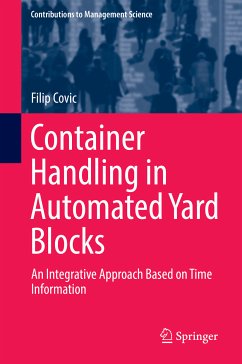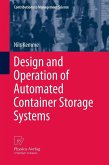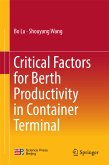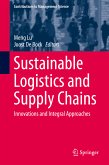¿The yard block of a container terminal is the central point of synchronisation for asynchronous container flows between deep-sea vessels and transport to the hinterland. The structure of the block stipulates that containers are stacked on top of each other with only the topmost container directly accessible by a yard crane.
This book describes a holistic and integrative approach to container handling in yard blocks to optimise productivity by minimising re-handling operations. The results provide insights for academic scholars as well as for experts from practical terminal planning and operations. The approach presented is two-fold: first, a theoretical foundation of the interdependencies in decision-making is established using mathematical programming. Secondly, operations involving uncertain container arrival information are examined on the basis of a simulation with a rigorous experimental design and statistical evaluation. In this context, the book develops container-handling strategies and analyses the impact of a system for vehicle arrival management - the "Terminal Appointment System". The findings presented in this book are the result of a close cooperation with experts at the port of Hamburg and build on previous research.
Dieser Download kann aus rechtlichen Gründen nur mit Rechnungsadresse in A, B, BG, CY, CZ, D, DK, EW, E, FIN, F, GR, HR, H, IRL, I, LT, L, LR, M, NL, PL, P, R, S, SLO, SK ausgeliefert werden.
Hinweis: Dieser Artikel kann nur an eine deutsche Lieferadresse ausgeliefert werden.









